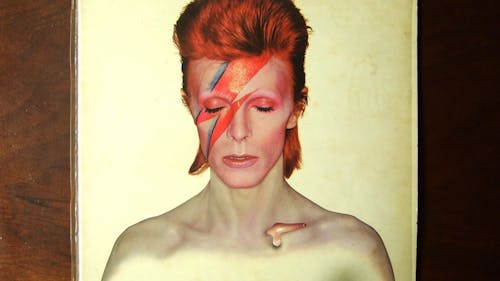Masculinity is changing, but for better or worse?

Masculinity is an idea currently undergoing change, and we are witnessing it as it unfolds.
GQ’s November issue is dedicated to investigating what masculinity means to people in the modern day. Along with celebrity interviews, it surveyed 1,005 Americans of differing backgrounds and noted some interesting takeaways.
While 97% of people said expectations for male behavior have changed within the past decade, 48% of men are comfortable with these changes and 27% are not. Interestingly, 42% of men and women said they have not talked about masculinity, but it seems to be a conversation worth having if expectations are shifting.
The concept of masculinity has existed almost as long as we have existed as a species, and there have been many takes on it by different cultures over time. A multitude of factors go into how we perceive masculinity, ranging from religion and philosophy to friends and family, to the various different art mediums we constantly consume.
Mainstream artists are a particularly interesting and massive influence on how masculinity is viewed. Figures such as Prince and David Bowie challenged the public’s perspectives in earlier decades with their music, fashion and overall persona.
Nowadays we see many more artists pushing the boundaries of masculinity such as Lil Uzi Vert, Frank Ocean and The 1975 to name a few. Young Thug’s mixtape “Jeffery” even has him rocking a baby blue, flowy dress.
Some of my views on masculinity have been shaped by artists such as these. Different people look to different sources of influence though, so here are what some other men on campus have to say about the topic.
“People take their masculinity too seriously where they can’t have feminine qualities because they are too masculine. I would say that (masculinity) subconsciously affects the way I express my emotions, I don’t think you would ever see me crying in public. I guess that is a form of toxic masculinity. I wouldn’t show any form of weakness in public," said Roshan Khan, a School of Arts and Sciences sophomore.
“What basically comes to my mind when I think of masculinity is power and how strong you are,” said Ajay Challapalli, a School of Arts and Sciences sophomore.
“I guess there’s a lot more talk about mental health nowadays compared to back then because I feel like the general atmosphere around mental health for men is becoming more accepting,” said Ethan Kan, a School of Arts and Sciences sophomore. “Scandinavian countries allow more paternity leave. They give a certain amount of days to both parents when they have a kid, and it’s up to them to split the days up between the father and mother. It’s changing the way we look at fathers.”
There were some overlapping beliefs among the men: Masculinity is in fact changing and masculinity affects the way they express emotions. Nobody really wants to cry in public or appear weak. Also, most people agreed that we should be cautious about throwing around the label of toxic masculinity frivolously.
Oddly enough, Dwayne “The Rock” Johnson was a name mentioned multiple times across the various interviews. He is a great example of masculinity as he embodies traits such as strength, charisma and fortitude, among others. The Rock is a genuine and charitable person whose actions back up his words, and he is wholly himself without being over the top with false bravado.
An example of someone who is over the top with trying to act masculine is Conor McGregor, a mixed martial arts (MMA) fighter. At one point he captured the imaginations of many MMA fans, but his allure changed when he started acting brash and irresponsible outside of the octagon.
Punching an old man at the pub, throwing a steel dolly, shattering a bus window and disrespecting someone’s religion are not examples of being a man, they’re examples of being an idiot. This would be toxic masculinity.
From the statistics, quotes and examples above, it’s not hard to consider the fact that masculinity is a wide-ranging concept. Some might live and express themselves by driving a pickup truck and chopping down trees while others might wear makeup and sing.
Both displays can share similarities such as being powerful and confident. Both displays can be deemed masculine.
Simply because masculinity is changing doesn't mean that we have to discard previous archetypal and historical notions of it that have carried us this far, but rather we should combine them with the new and developing notions so that we can create a more truthfully accurate concept of masculinity: the new masculinity.



